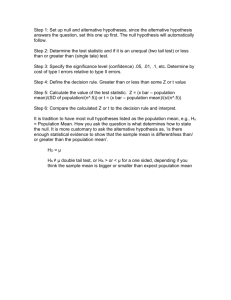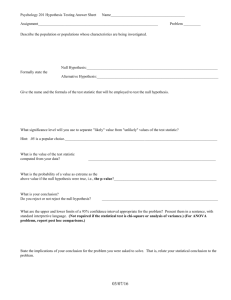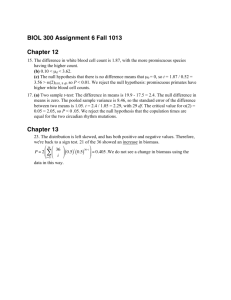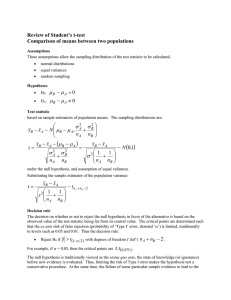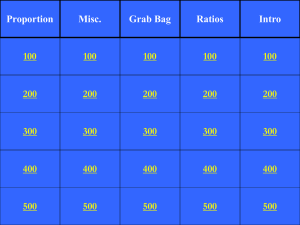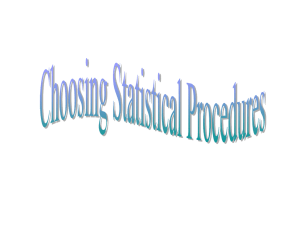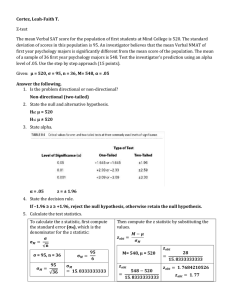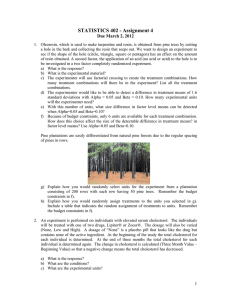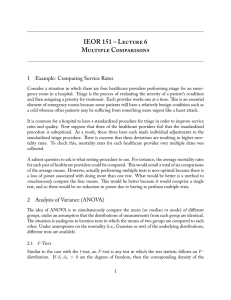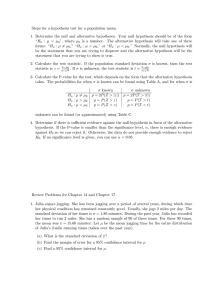jeopardy exam review round 2
advertisement
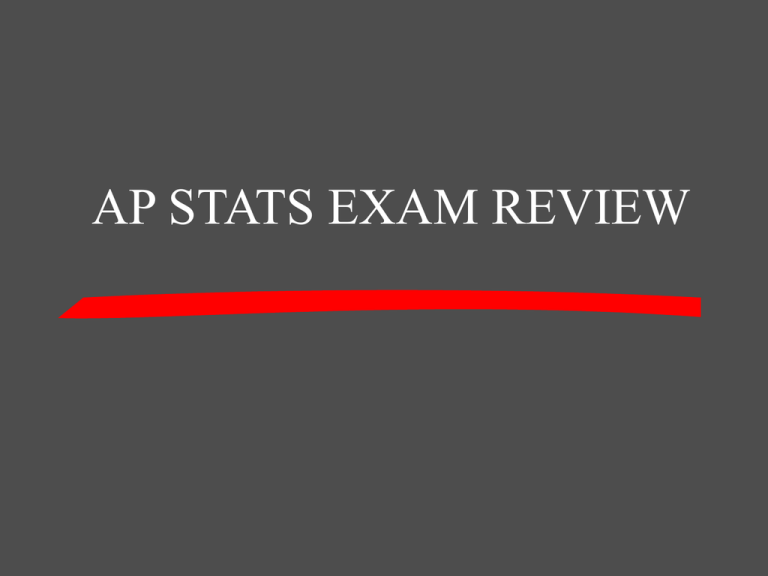
AP STATS EXAM REVIEW Chapter 7 Chapter 8 Chapter 9 and Chapter 10 Chapter 11 and 12 Chapter 13 and 14 100 100 100 100 100 200 200 200 200 200 300 300 300 300 300 400 400 400 400 400 500 500 500 500 500 This type of variable has a countable number of outcomes Categories Discrete Categories The normal distribution is this type of probability distribution Categories continuous Categories This is what the law of large numbers means Categories As the number of observations increases, the mean of the observed values eventually approaches the mean of the population Categories Chapter 7 400 Points This is how to find the mean of a discrete distribution Categories Chapter 7 400 Points The sum of each x multiplied by its probability Categories Chapter 7 500 Points σ2 of a + bx equals Categories Chapter 7 500 Points b2σ2 Categories Chapter 8 100 Points These are the three pieces of information you must have in order to find a binomial probability (put them in order like you would on your calculator Categories Chapter 8 100 Points N, p, r Categories Chapter 8 200 Points This distribution allows you to find the probability of having a certain number of failures before your first success Categories Chapter 8 200 Points geometric Categories Chapter 8 300 Points A basketball player makes 80% of his free throws. What is the probability that he will make 5 shots before he misses Categories Chapter 8 300 Points .85(.2) = .0655 Categories Chapter 8 400 Points Suppose you purchase a bundle of 10 bare-root broccoli plants. The sales clerk tells you that on average you can expect 5% of the plants to die. Find the probability that you will lose at most one of the broccoli plants. Categories Chapter 8 400 Points Binomialcdf(10, .05, 1) = .9138 Categories Chapter 8 500 Points The four conditions which make a situation binomial Categories Chapter 8 500 Points Two outcomes (success and failure), fixed number of trials, independent trials, same probability for each trial Categories Chapter 9 100 Points This rule states that for a large sample size the sampling distribution of x-bar if approximately normal Categories Chapter 9 and 10 100 Points Central limit theorem Categories Chapter 9 and 10 200 Points This is how you check if the sampling distribution of p-hat is normal Categories Chapter 9/10 200 Points np greater than or equal to 10 Categories Chapter 9/10 300 Points This is the definition of a type I error Categories Chapter 9/10 300 Points Rejecting the null hypothesis when it is actually true Categories Chapter 9/10 400 Points Meaning of a type II error Categories Chapter 3/4 400 Points We accept the null hypothesis but it is actually false Categories Chapter 9/10 500 Points This is the probability that a test will reject the null when it is not true (correct decision) Categories Chapter 9/10 500 Points power Categories Chapter 11/12 100 Points This is the number of degrees of freedom for a one or two sample mean Categories Chapter 11/12 100 Points n-1 Categories Chapter 11/12 200 Points This situation requires this type of hypothesis test: to test the effect of background music on productivity, factory workers are observed. For 1 month they had no background music. For another month they had background music Categories Chapter 11/12 200 Points matched pairs Categories Chapter 11/12 300 Points This is the standardized statistic for a 99% CI for a proportion Categories Chapter 11/12 300 Points 2.576 Categories Chapter 11/12 400 Points This is the standardized test statistic for a 95% CI of a mean with n= 30 Categories Chapter 11/12 400 Points 2.045 Categories Chapter 11/12 500 Points This is the statistic for a two sample proportion test Categories Chapter 11/12 500 Points Phat 1 – phat 2 Categories Chapter 13/14 100 Points This is the null hypothesis for a chi- square goodness of fit Categories Chapter 13/14 100 Points The population proportions equal the hypothesized values Categories Chapter 13/14 200 Points This is how to find the expected value on in a two-way table Categories Chapter 13/14 200 Points (row total x column total)/ table total Categories Chapter 13/14 300 Points This is the one condition for a chi- squared test Categories Chapter 13/14 300 Points all expected values are greater than or equal to 5 Categories Chapter 13/14 400 Points This is the number of degrees of freedom in a slope test Categories Chapter 13/14 400 Points N-2 Categories Chapter 13/14 500 Points This is how you find the standard error of the slope (used in a confidence interval) Categories Chapter 13/14 500 Points T = b/SEb Categories The Daily Double Categories
